Islamophobia
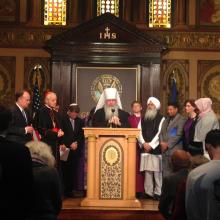
Vice President Joe Biden stood with clerics from different religions at Georgetown University on Dec. 16 and condemned the anti-Muslim rhetoric that has followed the recent shootings in Paris and San Bernardino, Calif.
“Look around. This is America,” Biden said, as he spoke on a stage with clergy wearing garb that varied from a priestly collar to a turban, and acknowledged the discomfort felt by many.
The vice president referred to the civil war in Syria and the millions of struggling refugees that some have said should be turned away.

Following a surge of attacks on mosques and Muslims — a backlash against recent extremist attacks in Paris and San Bernardino — Islamic leaders have been installing more security cameras and hiring more security guards. But as they worry about the physical safety of their flocks, they are also paying attention to the spiritual damage Islamophobia can inflict.
Hate crimes penetrate Muslims deeply and widely, said Kameelah Rashad, Muslim chaplain at the University of Pennsylvania.
“It erodes their sense of identity and their sense of their spiritual selves,” she said.
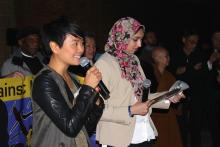
After 9/11, Kathy Masaoka heard a Muslim woman on the radio describe her hesitancy to go to the market for fear of being attacked.
“It crystalized for me at that moment, that this must be how my parents felt and how my family felt after Pearl Harbor,” she said.
Masaoka’s family is Japanese American. As a young man during World War II, her father was drafted into the Military Intelligence Service while his parents and siblings were sent to California’s Manzanar internment camp in the desert east of the Sierra Nevada. They lost their family business in Los Angeles.

Without mentioning Republican presidential candidate Donald Trump by name, Detroit Archbishop Allen Vigneron has blasted proposals like Trump’s that would specifically bar Muslims from the U.S., saying the idea “fractures the very foundation of morality on which we stand.”
Vigneron’s denunciation, in a letter he sent on Dec. 10 to his priests, is significant because Catholic leaders have been strong defenders of religious freedom in recent years but have been largely quiet in the wake of Trump’s controversial pitch earlier this week to bar all Muslims from the U.S.
“While the Catholic Church refrains from weighing in for or against individual candidates for a particular political office, the Church does and should speak to the morality of this important and far-reaching issue of religious liberty,” Vigneron wrote in the letter, which he also sent to imams in his state.

Speakers at the rally included representatives of the Islamic and Christian communities, the National Organization for Women, Code Pink, and Ghada Mukhdad, a Syrian refugee and member of the Syrian Civil Coalition which, according to their website, is a “lobby of Syrian civil society organizations, activists, and initiatives” that seeks to address “the increasing gap between the needs and priorities of the Syrian society on one hand and those making decisions concerning Syria.”
This week's Wrap was guest curated by Sojourners contributor Adam Ericksen. Read along for his top stories and notes from the week!
There was a lot of negativity in the news this week, but mercy also filled the airwaves. In case you missed it, here’s a list of some merciful events from the week:
1. Pope Francis Opens the Door to ‘Year of Mercy’ in a Time of Fear
Sure, we have some differences, but we’re still crushing on the Pope. “To pass through the holy door means to rediscover the infinite mercy of the Father who welcomes everyone and goes out personally to encounter each of them.”
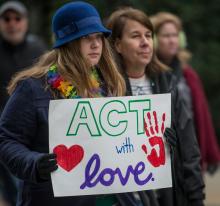
Since the Republican presidential front-runner announced after San Bernardino that he would close America’s borders to Muslims, a debate has ensued about what “radicalization” means and how far we as a nation are willing to go to protect ourselves from it. So-called liberals (and even some in the Republican party’s mainstream) have said, “Not all Muslims have been radicalized.” To this Donald Trump retorts, “Until we know which ones have been, let’s keep them all out.” The unquestioned consensus in America’s public square is that we can only be safe by figuring out who the un-American terrorists are and getting rid of them.
But where we're from in North Carolina, we should not be so naïve. We have a disproportionate share of homegrown terrorists.
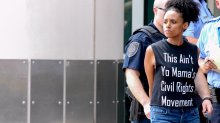
America stands at one side of a bridge right now as a white majority nation — on the other side, a country comprising a majority of minorities. This change is inevitable, but how our nation responds to it is currently unclear.
Are we headed for more conflict as too many in the shrinking white population try desperately to cling to the past? Or can we cross this bridge to a new America where we begin to see the "beloved community" that Dr. King envisioned?
On Jan. 19, the day after our country commemorates Dr. Martin Luther King Jr. Day, my new book, America's Original Sin: Racism, White Privilege, and the Bridge to a New America, will be released. As members of our Sojourners community and readers of my weekly column, I wanted you to be among the first to watch this preview.
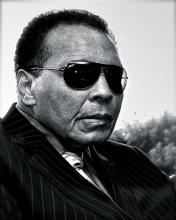
Muhammad Ali aimed a powerful and impassioned message at Republican presidential candidate Donald Trump on Dec. 9, saying that the recent global terrorism crisis has “perverted people’s views on what Islam really is.”
Ali became a Muslim and changed his name from Cassius Clay during the height of his career as one of the greatest boxers in history. His message came in a statement following a week in which Trump cast doubt on President Barack Obama’s assertion that several American “sporting heroes” practiced Islam.
“I am a Muslim, and there is nothing Islamic about killing innocent people in Paris, San Bernardino, or anywhere else in the world,” Ali said.
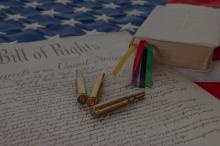
I love my school, and Liberty is not a monolithic place — there are a diversity of worldviews and backgrounds here, and not every student is happy about Falwell’s sentiments. I have met many students and faculty who have helped me develop as a Christian, an academic, and a person. And I applaud the school’s response to the families of the victims of the shooting in San Bernardino, Calif. Hopefully by reaching out to them, Falwell can still bring some sense of healing to the situation.
But I feel I need to speak out on this issue. I believe opportunistic pro-gun rhetoric is deeply devastating to the Christian message.
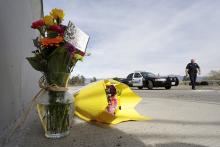
After the San Bernardino massacre, I, like other Muslims, worried about my safety.
I wondered what would happen if I went outside, given that I’m easily identifiable in my hijab. I wondered what that day, or the next or the day after that, would be like for me.
And that, I have decided, is ridiculous. I was not a victim that day.
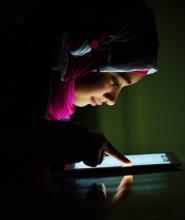
An alarming wave of Islamophobia is sweeping our nation, and we are troubled by the participation of Christians. Our diverse gifts and perspectives as a community of faith and learning lead us to a common commitment to work for justice, inclusion, and equality. We repudiate the hostility and hatred aimed at Muslims in and beyond our own communities.
We pledge to challenge Islamophobia whenever and wherever it occurs, including on our own campuses — to foster relationships with Muslims based on friendship and not fear, and to serve the common good by maintaining a firm commitment to racial and religious diversity.
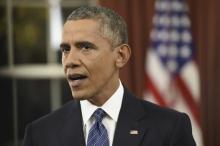
President Obama sought to reassure the nation amid renewed fears of terrorism the night of Dec. 6, saying the terrorist threat has “evolved into a new phase” of attacks hatched at home by extremists “poisoning the minds” of killers already on American soil.
“I know how real the danger is,” said Obama.
“The threat from terrorism is real, but we will overcome it. We will destroy ISIL and any other organization that tries to harm us,” Obama said.

POPE FRANCIS arrived in the United States amid a flurry of talk about Muslims. There was Ben Carson’s statement that he would not want a Muslim to be president. There was The Donald’s promise that a Trump administration would look into the supposed network of Muslim terrorist training camps in the United States. And there was young Ahmed Mohamed in Texas, who got suspended from school and shackled in handcuffs when his science project was mistaken for a bomb. Maybe the police were concerned that he’d designed it in one of those fictitious terrorist camps.
It appears that many Americans are in a panic about the prospect of a Muslim takeover.
Domination by a foreign religion is an old anxiety in America. As we hang on every word Pope Francis utters, it is interesting to note that for much of our history a driving fear was that Catholics would amass significant political power and the pope would fly his flag at the White House. “Our freedom, our religious freedom, is at stake if we elect a member of the Roman Catholic order as president of the United States,” Norman Vincent Peale warned in September 1960 about John F. Kennedy’s candidacy.
With 30 percent of Congress now claiming to be Catholic, six Catholics sitting on the Supreme Court, several Catholics occupying high office (including the vice president, the secretary of state, and the speaker of the House), and a pope with much to say about major policy issues, that particular apocalypse appears to have arrived.
Mostly, it has been met with applause. The papal flag was indeed flying at the White House during the pope’s arrival ceremony—several thousand of them in fact, more than a few in the hands of the many non-Catholics in attendance. Recent surveys show that Catholics, along with Jews and mainline Protestants, are among the most well-liked religious groups in the United States.
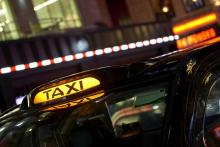
Hate crimes in America dipped across the board in 2014, except in the category of anti-Muslim crimes, which rose about 14 percent over the prior year. Given the barbaric Islamic State attacks in Paris last week and elsewhere recently, that latter trend seems destined to accelerate.
The presence of hate crimes against Muslims is no new phenomenon. Prior to the 9/11 attacks, there typically recorded between 20-30 hate crime against Muslims per year and after 2001 that number rose to nearly 500.
This summer, we saw the murder of three Muslim students in Chapel Hill, N.C. On Nov. 15 in London, a man pushed a Muslim woman into an oncoming underground train. And on Thanksgiving Day, a man in a taxicab in Pittsburgh, Pa., shot his driver in the back for being Muslim.
These incidents do not need to be listed as statistics to validate reality but they do need to be heard.
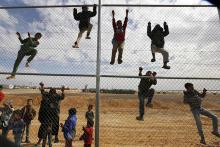
Evangelicals may be united that the Bible is the ultimate source of authority, but they are divided on how the Bible would lead us to respond to the growing crisis of refugees fleeing from Syria.
What is the best way to show Christian love and compassion? How is the church’s role different from the state’s? How do we show wisdom and prudence in securing the safety of our neighbors and nation?
These are just a few of the questions that evangelicals are grappling with. One evangelical pastor today told me, “My church members are all over the place on this!”

Shortly after the string of deadly, near-simultaneous attacks around the French capital, Faical Ouertani got a call from distraught friends in Tunisia.
“Their grandchildren were out celebrating a birthday,” the French Muslim said of two youngsters, also Muslims, who were shot by the assailants at a restaurant.
“They were probably among the first victims. Today, one is in the hospital; the other one is dead.”

"The people who are fleeing Syria are the most harmed by terrorism, they are the most vulnerable as a consequence of civil war and strife. They are parents, they are children, they are orphans. And it is very important — and I was glad to see that this was affirmed again and again by the G20 — that we do not close our hearts to these victims of such violence and somehow start equating the issue of refugees with the issue of terrorism.
"When Pope Francis came to visit the United States, and gave a speech before Congress, he didn’t just speak about Christians who were being persecuted. He didn’t call on Catholic parishes just to admit to those who were of the same religious faith. He said, protect people who are vulnerable."

Teams around the NFL paid tribute to those who lost their lives in the terrorist attacks in France last week with a moment of silence before Sunday’s games.
At Lambeau Field, before the Green Bay Packers lost to the Detroit Lions 18-16, a fan shouted out a slur against Muslims during the moment of silence.
That did not sit well with Green Bay quarterback Aaron Rodgers, who called out the fan in his postgame comments.
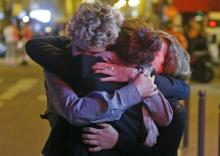
Pope Francis raised the specter of a World War III “in pieces,” Muslims issued statements of condemnation, while evangelical Christians in America debated whether to speak of a “war with Islam.”
These were some of the responses by religious leaders around the world on Nov. 14 to the series of attacks overnight in Paris which left more than 120 people dead.
“This is not human,” Francis said phone call to an Italian Catholic television station. Asked by the interviewer if it was part of a “Third World War in pieces,” he responded: “This is a piece. There is no justification for such things.”